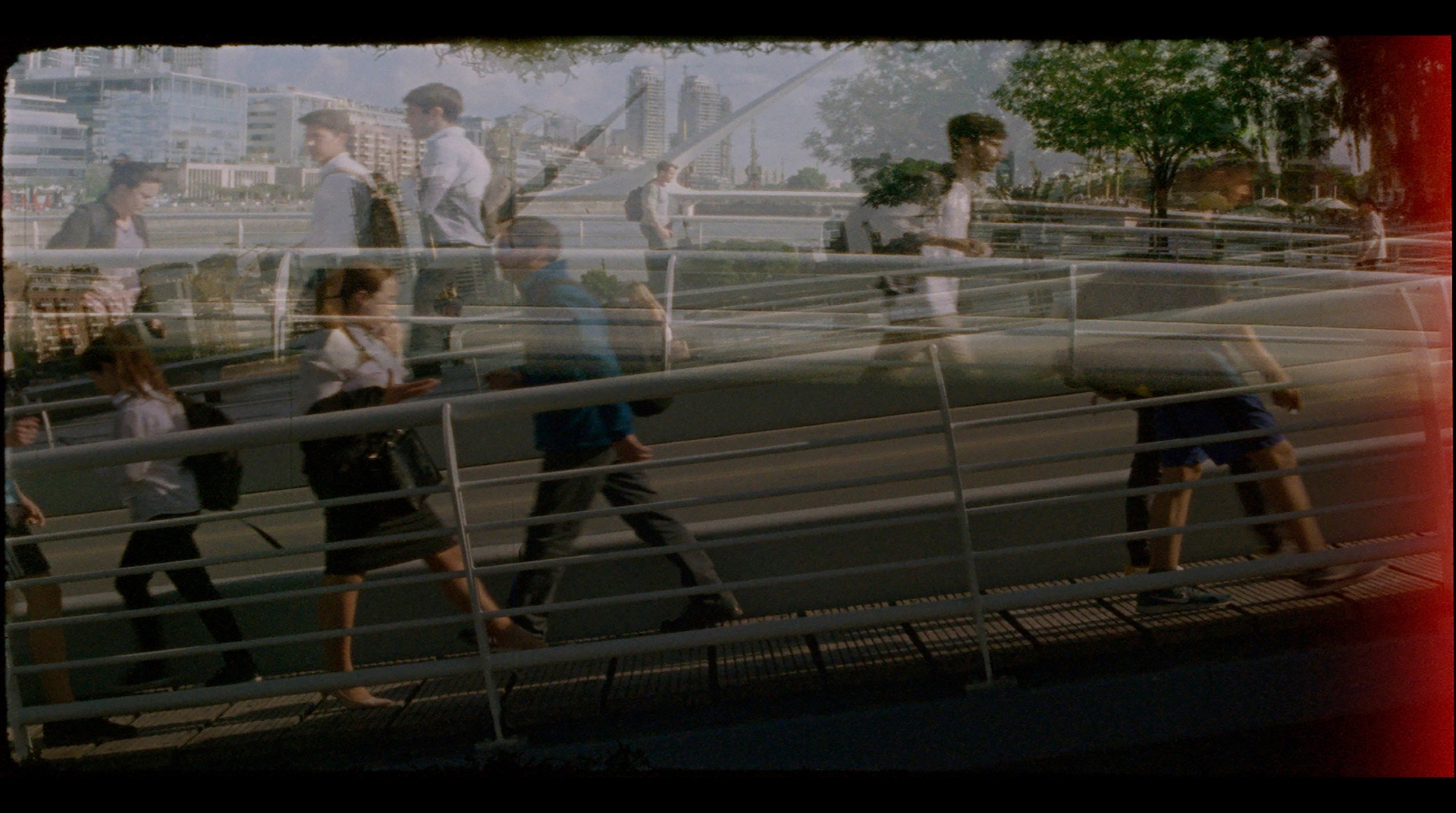Azucena Losana, Cangallo y Canning
A diary featuring street workers and a president on the run on an imaginary corner of Buenos Aires between two streets that never cross each other and that are not called that way anymore. “Then cinema shows its weapons, tracing unsuspected relationships, making movement a dance and light something as material as the mirrors in which it is reflected. A possible portrait of Buenos Aires that is also the portrait of a camera-inhand filmmaker, conquering literally new heights and braving street noise to embrace it.” (Magdalena Arau)
Alla presenza dei registi Benjamín Ellenberger, Azucena Losana, Pablo Marín, Jessica Sarah Rinland e del curatore Orazio Leogrande.

Azucena Losana, born in Mexico City in 1977, lives and works between Mexico City and Buenos Aires, creating experimental films, installations and videos. She organises the itinerant programming of 'Cinema Cinico'.
Orazio Leogrande
Ten shorts made in Argentina throughout the last ten years. Ten works shot on film. Perhaps these are the only features that these films have in common. One might ascribe them to experimental cinema, inclined as they are to renew forms of expression, production and cinematic experience. These films are in fact self-produced, made by choice, distributed in alternative spaces, and in some cases put together over years. From epistolary exchanges to historical memory, from the structural analysis of a place to its hallucinated revisitation, they reflect a profound image of a distant land. Economic crisis, institutionalised populism, social neglect– but also market colonialism, planetary homogenisation, expanded virtuality, have hindered this form of cinema which – despite or thanks to this – has managed to imagine an alternative present. When at the turn of the millennium the market began to move towards digital, these directors shot their first works in film. Celluloid has the advantage of sowing an immediate, sometimes secret dialogue with filmmakers of the prior generation. It also offers a physical connection with the work material. It anchors a frame to reality, by virtue of a sole and unrepeatable ray of light. Precisely because it is forgotten, the analogue reveals itself as an inexhaustible space of freedom. The films in this programme summarise a near past, and are the outcome of a common battle. In uncertain times, these films also appear as a luminous auspice for what cinema will become.
Con il patrocinio di:


Si ringraziano per la collaborazione:


ALL SCREENINGS ARE FREE

